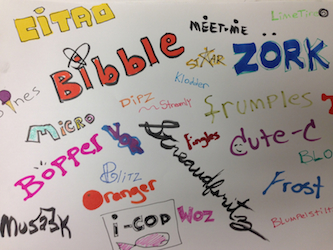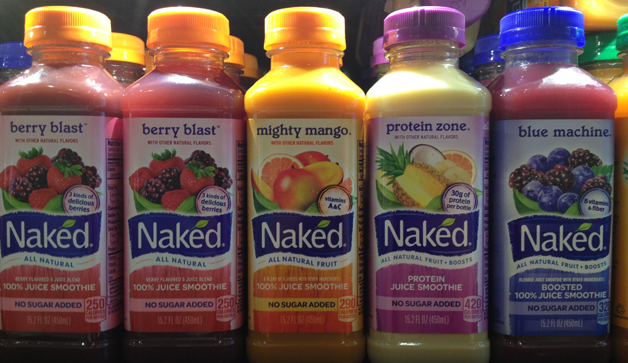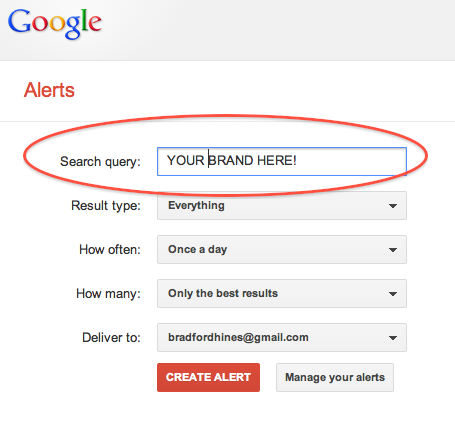NAMING A BRAND FOR SUCCESS
What's in a name? Here's everything you need to know to name your brand.
by Brad Hines 2-6-14 12:37 am
Do you ever really like a brand, but then you think to yourself "what a stupid name though!"? While a crappy name won't necessarily doom a company for success, it can be a hurdle to overcome. The art and science of great naming is absolutely about balancing a confluence of core concepts:
Descriptiveness, trademark strength, originality, length, integrity (the bigger picture of the name and brand), domain name availability, and lastly, the name's tested market appeal.
We don't ever want to find ourselves naming exclusively reaching for one particular quality of a name, as there is a bigger picture to be considered.
Being integral: is when a name can have some kind of double meaning, there is a kind of whimsy about it, but both interpretations of the name have to lend to your branding strategy. For example, I am currently involved for fun in Lays® potato chip brand creation contest. I picked Mediterranean Sea Salt as one of my names for a salt and olive oil flavored chip, as it has a kind of play on words aspect to it. Another example is a geometry lesson plan I made for school math teachers to give to their students– "Get Into Shapes".
Another example is a geometry lesson plan I made for school math teachers to give to their students– "Get Into Shapes".
This wholistic quality of naming is often the hardest to obtain, but it is that quality that can tickle a customer with delight, and that makes a brand seem balanced– like it "just makes sense".
I have named many products that I have designed over the years, and I aim for when the name created can evoke a feel for what the product is, before you even see so much as a logo. Names of my products that I submit to design website Quirky–examples like Slapstick, Blahbradoodle, Eiffel, Sharephones, Swfit, Ecrobrella–are good case studies in combining that kind of whimsy with evoking an idea.

Put another way, I tell my clients over and over that good story telling is everything in marketing and branding. That said, great stories start with the name.
Resist the eponymous brand: Unless your personal brand carries existing notoriety, avoid naming your business after yourself. While Steven King can emblazon his name on his book larger than the title, and Donald Trump can (and will) put his name on anything from a water bottle to a hotel, you will likely miss out in a few ways using your own name–it will look egotistical, uncreative, and in the wrong market, it will totally lack whimsy or everyman appeal. There are exceptions: Like Trader Joe's named for founder Joe Coulombe, and of course, the also eponymous Ben and Jerry's Ice cream. Don't confuse their names' existing goodwill with the difficulty inherent to how hard it may have been overcoming the pedestrian name to begin with (although there is the argument that their brand's names made them approachable which made sense for a supermarket and purveyor of ice cream!).
"Case study" of a good name:
As an example and amusing exercise, think of many cleverly named brands and imagine the  inverse of the Trader Joe's or Ben and Jerry's format, e.g. if Naked Juice had been the less than inspiring "Dave's Juice" (for co-founder David Bleeden). "Dave's Juice" also would totally lack the subtle edginess that "Naked Juice" suggestively has, and therefore is a totally forgettable name. The word 'Naked' also suggests purity, which for a healthy juice, makes it a case study as a great name.
inverse of the Trader Joe's or Ben and Jerry's format, e.g. if Naked Juice had been the less than inspiring "Dave's Juice" (for co-founder David Bleeden). "Dave's Juice" also would totally lack the subtle edginess that "Naked Juice" suggestively has, and therefore is a totally forgettable name. The word 'Naked' also suggests purity, which for a healthy juice, makes it a case study as a great name.
"Case study" of a bad name: The "Juke", as in Nissan Juke, as in an awkard-to-say moniker that manages to rhyme with puke, be obscure, and vaguely sound like a racial slur. (Pardon the unintended rhyme!)
Legal Research: EatMyWords Founder and naming expert Alexandra Watkins advises on the legal loose ends of naming your business, "For initial trademark screens, you can do free searches on Trademarkia.com and the government's trademark database, TESS, at USPTO.gov. Use these to knock out potential conflicts, then hire an attorney to do a thorough search. This is not something you want to skimp on."
Digital name availability. Companies with a substantial amount of liquid capital have the luxury to come up with a name for their business that has a domain name they will need to buy in the aftermarket. Most businesses on a shoestring, however, might be better suited to make up an arbitrary term. There is a double benefit to using an arbitrary term, and that is having the highest associated trademark strength. Arbitrary terms are words that can't really possibly be associate with the business. Spotify for example is a great arbitrary term, since it has no associations with anything at all, much less music. Sticking with that example, their name might have been better, if it had in fact been something more evocative of music.
You can search for domain name availibility at Godaddy, who I recommend for the customer service. Watch their upselling though, they are relentless with it.
Seshu Madabushi, mobile marketer with MKonnekt points out that this type of consideration for naming your brand, of course now goes beyond domain availability: "When coming up with a product name make sure that you can get the digital assets very easily–social media assets like, Facebook, Instagram account etc." he advises.
advertisements:

Descriptiveness is a major bonus if can be added to a names factor. You want the name of something to resonate with the audience. Great descriptiveness is when someone hears the name and can tell what the product or service might be without even having prior brand awareness. The peril of descriptiveness is that it runs the risk of totally lacking "stickiness" if it is too matter-of-fact in the description. The largest benefit to being very descriptive happens online, where search engines love descriptiveness. Where we name brands for people, and not search engines, try to straddle the best of both worlds.
Aligning the brand's associated image, with industry image: imagine if Apple Computer ( a great arbitrary term by the way) has been "Two Steve's Computers". Not only would it violate the eponymous name rule, but it just plain sounds campy which wouldn't have behooved an international computer company. Five Guys hamburgers on the other hand, named for a father and four sons, they know that a hamburger company shouldn't take itself too
 A perfect example is the Women's Expo. The URL is www.womensexpo.com, well to many people, that will read "Women Sex Po". Not quite what the event is about! A perfect example is the Women's Expo. The URL is www.womensexpo.com, well to many people, that will read "Women Sex Po". Not quite what the event is about! |
seriously, and that they can have a name like, well, Five Guys.
Brainstorming like nothing matters, market research like everything matters: How can people brainstorm best? Brainstorm names, literally over a beer (for the actual dissociative-thinking/cognitive creative benefits). Write down every thought, and when we are taped for ideas ourselves, we can continue the brainstorm "sesh" with others.
- Have fun with it.
- Don't take it too seriously, look at goofily named women's fashion retailer ShopBop that decided to let their name rhyme.
- Come up with a list of names. Take those names you like, and gut-feel them out, ask friends what the name evokes.
- Ultimately market research each name to a wider audience. Hold a focus group, poll your e-mail list, or use research websites to find out which names people like the best, and most importantly why.
TIP: Market researching the name is not the end all be all. Make sure you understand the context of why whatever name was the most popular.
 Tie up loose ends: by securing your respective domain name variations, trademark protection, making sure the name doesn't mean something unintended (think how the Nova by Chevrolet inadvertently meant "No Go" in Spanish markets).
Tie up loose ends: by securing your respective domain name variations, trademark protection, making sure the name doesn't mean something unintended (think how the Nova by Chevrolet inadvertently meant "No Go" in Spanish markets).
How will the domain name look? "Always make sure people can type your business name into the address bar and find you easily. A perfect example is the Women's Expo. The URL is www.womensexpo.com–well to many people, that will read "Women Sex Po". Not quite what the event is about!", says marketing expert Desiree Wolfe.
Put out Google alerts for your name and use social media to track your brand mentions and adjust to brand interpretations on the fly. We should aim to get the name for our brand right the first time. Changing a name, and your customer's awarness of it, is a major hassle!
Takeaway: Devising a great brand name for your business needs to straddle you liking it, and your audience. Don't name something because you were convinced somehow it would sell the best, and also don't refuse all advice because you are personally attached. Great names resonante: they are fun when they should be, describe the business, and "just make sense".
